
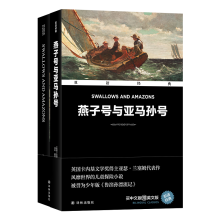

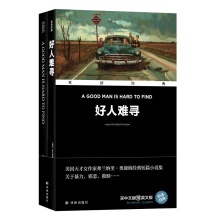

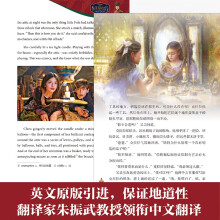
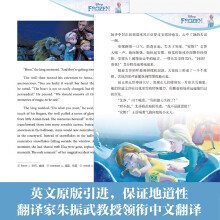


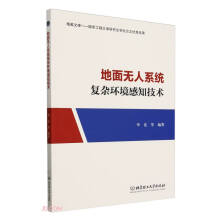
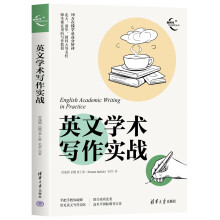
《文学思考的洲际对话》是“外国文学研究文库”系列第二辑的一本。该系列旨在将国外的文学学界的学术成果及时引进和介绍给我国外国文学学者、学生及爱好者,反映外国文学研究领域在世界范围的发展趋势与前沿探索。
该系列以英文原文的形式出版,并辅之以国内这一领域的资深学者撰写的导读,帮助读者把握作品的脉络,掌握其思想要点,更全面、更深入地理解作品要义。
本书重点论述文学的本质及重要性、诗歌、世界文学、文学教学、文学伦理等话题,对全球化浪潮中文学的现状与未来进行深入探讨,为文学阅读和教学提供了可供借鉴的操作范式。
《文学思考的洲际对话》的作者兰詹·高希与希利斯·米勒,一位是印度北孟加拉大学的英文教授,一位是美国当代著名文论家和比较文学家。书的正文分为五大部分,每一部分都包含两个章节,由两位作者围绕同一话题以对话形式分别展开论述。二人就文学的本质及重要性、诗歌、世界文学、文学教学、文学伦理等话题分别阐述观点,对全球化浪潮中文学的现状与未来进行深入探讨,为文学阅读和教学提供了可供借鉴的操作范式。
《文学思考的洲际对话/外国文学研究文库》:
The process of inventing literary works has also been radically changed. The underlying matter of literature, its material base, has been revolutionized. For most poets or novelists, no more writing successive drafts by hand on paper with a pen or penal, then laboriously typing and retyping the text to get a final draft ready to be typeset. This typesetting happened at first, during the early print epoch, letter by letter. Subsequently it was done by linotype, with successive proofs to be read and marked by hand. these were set and then reset again when the second proofs had been checked. That was still the case when I began my scholarly work.
The composition of Literary works on the computer has changed all that. Ihe ease of revision of a computer file means that a new literary text is never really finished. It can always be further revised, as I am revising this essay at this moment (5:56 PM, April 16, 2016), and have revised it repeatedly in the past several years. The successive drafts of computer files are, for the most part, lost forever. That puts a whole scholarly industry out of business: the study of early drafts of a given text. This new form of literature exists from the beginning in a quasi-disembodied form, as zeros and ones on a hard drive or in some cloud memory. Though the file may ultimately take print form, that printing is now done flawlessly from a computer file. That file often exists as a PDF. More and more, literary works come out simultaneously in print form and as e-texts. People who read literature at all anymore often choose to read it on line, in another form of the prestidigitaluation of literature.
As I said in a book title, 7he Medium Is the Maker: Browning, Freud, Derrida and the New Telepathic Technologies,6 the mode of materialization of a given literary work fundamentally determines its meaning and its performative force. The matter of literature matters. The new computer medium makes literature radically different from its old self, different, that is, down to its roots, which is what radical etymologically means. Medium must be taken here in the sense both of a new material base and of a seemingly, but of course not actually, somewhat spooky, spiritualist, mediumistic, telepathic means of transmission. Something speaks to me through the medium, for example, from the computer screen, but by an entirely explicable technological process. Ranjan Ghosh is much less concerned than I am with the effect of the medium on meaning. At least he writes Little About it. For him, just as "the Sacredness of Literature is perennially valid as a concept of what literature is and what it does, so it does not seem to matter in what medium a given work is encountered. Frost's "Birches" remains Frost's "Birches: whether we read it in printed book or on an iPad, in a digitized version. That is a plausible assumption, but I am arguing otherwise. For me, the medium is an important determinant of meaning.
Strangely enough, one thinks with one's fingers when writing. I am not a creative writer, just someone who writes about, and roundabout, literature, in endless arcumocution. Nevertheless, I have gone through the difficulty of changing from inventing words with a pen in my hand, as I used to do, to inventing them with my fingers on a computer keyboard, as I do habitually now. The latter is happening right now, with the words that are at this moment flowing through my fingers from who knows where in my nervous system, onto the keyboard and then magically appearing on my computer screen. Some impersonal inner voice seems to speak them as
they are keyed in. They come into being by an inventive bodily process that is more discovering than deliberately making up, to recall the bifurcated meaning of invention.
……
Preface
Acknowledgments
Acknowledgments
Introduction: Thinking across Continents
Introduction Continued:
The Idiosyncrasy of the Literary Text
PART I: The Matter and Mattering of Literature
Chapter 1. Making Sahitya Matter
Chapter 2. Literature Matters Today
PART II: Poem and Poetry
Chapter 3 The Story of a Poem
Chapter 4 Western theories of Poetry:
Reading Wallace Stevens's "The Motive for Metaphor"
PART III: Literature and the World
Chapter 5 More Than Global
Chapter 6. Globalization and World Literature
PART IV: Teaching Literature
Chapter 7 Reinventing the Teaching Machine: Looking for a Text in an Indian Classroom
Chapter 8. Should We Read or Teach Literature Now?
PART V: Ethics and Literature
Chapter 9 The Ethics of Reading Sahitya
Chapter 10. Literature and Ethics: Truth and Lie in Framley Parsonage
Epilogue
Notes
Bibliography
Index
温馨提示:请使用长沙图书馆的读者帐号和密码进行登录